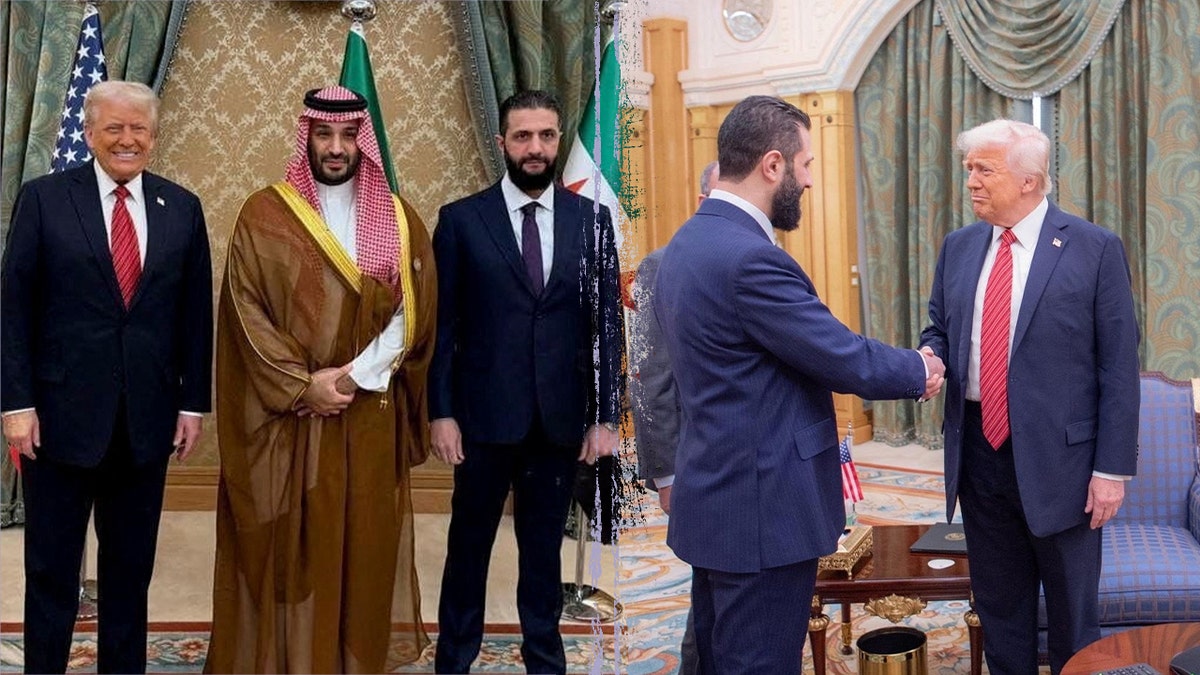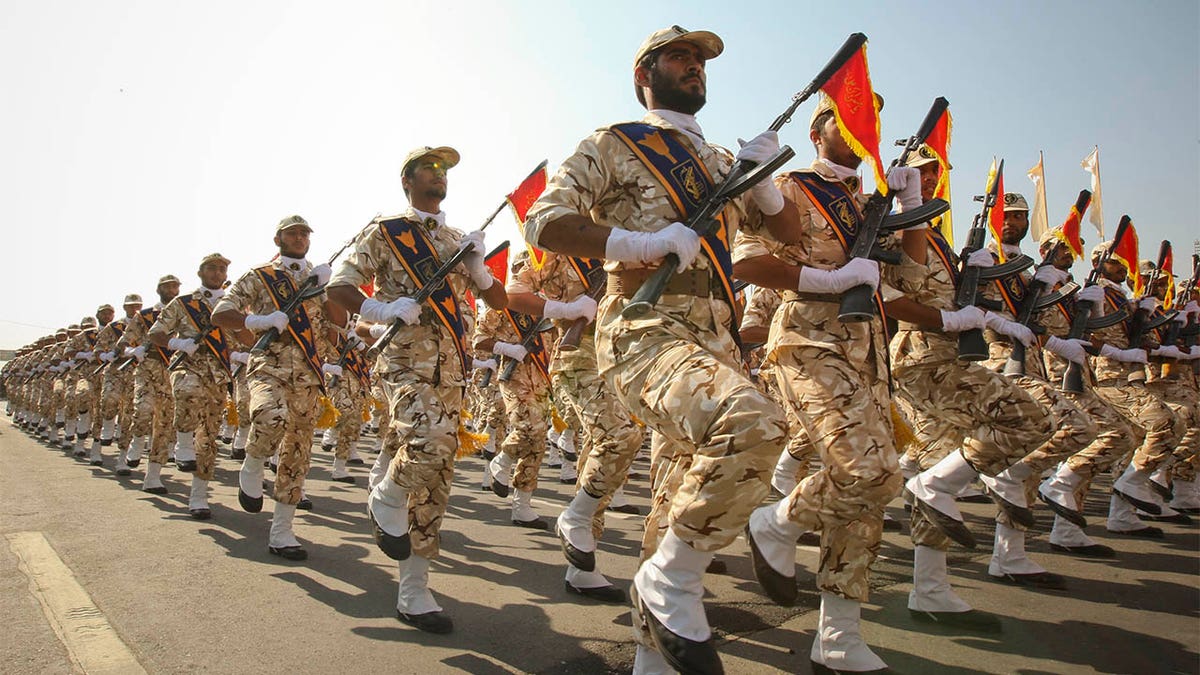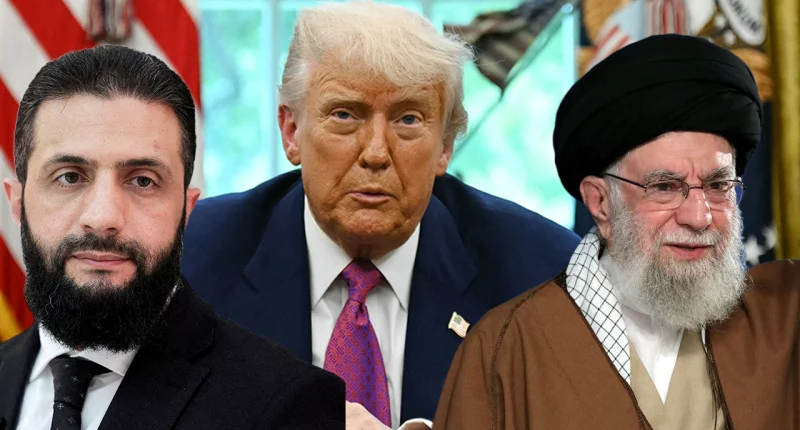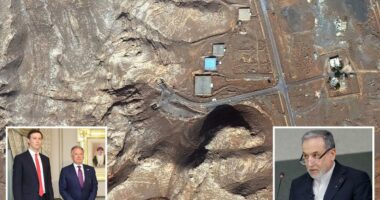Share this @internewscast.com
President Donald Trump recently announced a plan to normalize relations between the U.S. and Syria, lifting sanctions that have been in place for decades. He is also the first American president in 25 years to meet with Syria’s leader—a decision some interpret as an indirect challenge to Iran.
This was unexpected, especially given Trump’s earlier stance expressed in a post last December where he remarked, “Syria is a mess, but is not our friend, & THE UNITED STATES SHOULD HAVE NOTHING TO DO WITH IT.”
This shift represents a strategic gamble that could enhance regional stability and U.S. interests by countering Iranian influence, as explained by Behnam Ben Taleblu, an Iran expert and senior fellow at the Foundation for Defense of Democracies.

President Donald Trump, Syrian President al-Sharaa and Crown Prince Mohammed bin Salman. (Reuters)
“Tehran traditionally responds to these sorts of things with patience. The Islamic Republic has an ideological view of the way the region should be oriented, and has put time, money, resources, blood and treasure towards that,” Ben Taleblu said.
The Iran-expert explained that Tehran is waiting for the U.S. and Israel to loosen its pressure on the regime and its proxies, “and for Washington and Jerusalem to make mistakes in the region as they try to push towards bigger-picture things – like flipping Syria or regional peace and stability.”
“And it is there that in the interim, while Washington focuses up on building up states that Tehran will focus on building up proxies and partners,” he added.

FILE- Members of the Iranian revolutionary guard march during a parade. The IRGC is designated as a foreign terrorist organization by the State Department. A large part of its work is to covertly operate outside of Iran. (Reuters.) (Reuters)
Syria is not a united nation as conflict persists across the country between varying minority groups, former regime loyalists and terrorist organizations like ISIS.
Secretary of State Macro Rubio also warned lawmakers on Tuesday that Syria could be just “weeks” away from a “potential collapse and a full-scale civil war of epic proportions.”
These fractures pose a significant vulnerability for the new Syrian government.
“Whenever there is a downtrodden or dispossessed person in a war zone or in a conflict zone, that is Tehran’s angle of entry back into a conflict,” Ben Taleblu said. “This has been Iran’s strategy, sitting and waiting and looking to exploit opportunities across the entire northern tier of the Middle East, from Iraq to Syria to Lebanon.
“Exploiting disarray is a specialty of the Islamic Republic,” he warned.

People wave guns in the air as they gather to celebrate the fall of the Syrian regime in Umayyad Square on Dec. 8 in Damascus, Syria. (Ali Haj Suleiman/Getty Images)
The expert explained that if the Trump administration wants to ensure that Iran is unable to exploit vulnerable populations in Syria, then it will need to press Damascus to address the sweeping concerns facing various groups across the country.
Though the president, and his constituents, notoriously opposed nation-building, which could spell trouble for the long-term security of Syria as it sits in Iran’s shadow.
“Tehran is going to be playing the long game. It’s going to be running the clock when it comes to American and Israeli patience for what the future regional order could look like,” Ben Taleblu warned.
















